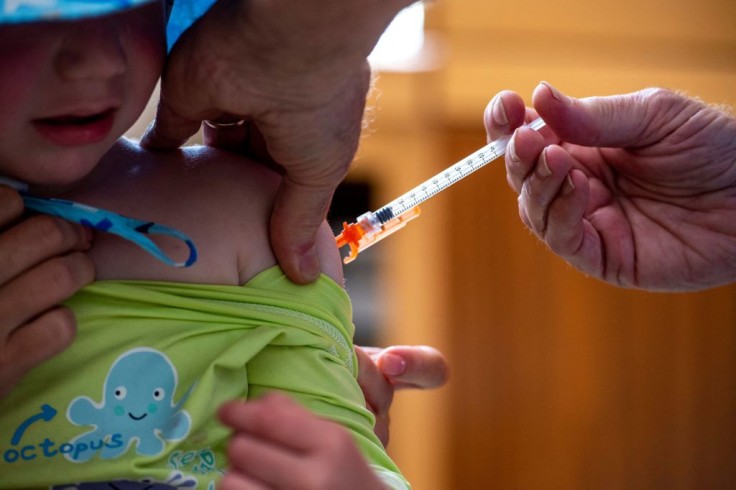
Parents inject growth hormones into their kids to help them achieve the "height" they deem acceptable.
There is a new trend in town, an expensive one, and one that may have the possibility of causing serious heart conditions along the way.
More parents are subjecting their kids to human growth hormones to achieve certain beauty standards.
Parents injecting growth hormones into their kids
According to the New York Post, parents with financial means who want to give their children every advantage are increasingly seeking human growth hormone prescriptions for their kids, a trend dubbed "cosmetic endocrinology" by a pediatrician.
While some parents may opt for hormone injections for medical reasons, most children considered short for their age do not have an underlying medical condition that affects their growth.
For instance, in 2021, a Manhattan father named Robert took his 12-year-old son, who was 4 feet and 5 inches tall and ranked in the first percentile on the growth chart, to see a pediatric endocrinologist.
Tests revealed that the boy did not have any health concerns that were hindering his growth.
After much consideration, Robert and his wife decided to give their son human growth hormone, which cost roughly $3,000 before insurance, because they wanted to help him grow for social reasons.
According to Dr. Eric Ascher, a family medicine physician at Lenox Hill Hospital, parents may give their children hormone shots for various reasons, but the desire for appearance is often the primary motivator.
However, he cautions that this procedure has drawbacks, including sending a negative social message to children at a young age and increasing the risk of heart issues later in life.
As defined by the Cleveland Clinic, human growth hormone, which is naturally released by the pituitary gland, plays a crucial role in promoting growth in children, influencing metabolism, and maintaining body structure in adults.
It triggers growth in nearly every tissue and organ in the body by signaling chondrocytes and osteoblasts to increase replication, leading to growth in size.
Read Also: Prince Harry, Meghan Reveal Both Children Will Use Royal Titles at Intimate Christening Ceremony
Human growth hormones: advantages and side effects
The use of human growth hormone in children has become popular among some parents who seek to prevent bullying or boost their children's athletic or modeling careers.
This trend first emerged in China, where some parents force hormone injections on their kids while others want their children to be taller.
According to News Image, in China, being tall has become a significant criterion for young men and women in terms of finding a mate and getting certain jobs.
However, this parental anxiety over their children's height has led to the misuse of synthetic human growth hormone, which can have short- and long-term side effects when given to normal, healthy children.
While human growth hormone therapy can be appropriate for children with underlying systemic diseases - Prader-Willi syndrome, Turner syndrome, or short bowel syndrome, its use in healthy children is not recommended.
According to a knowledge guide from Beijing Tsinghua Changgung Hospital, even in cases where the therapy successfully promotes growth, it only results in a maximum increase of 4 to 6 centimeters.
Moreover, high doses of human growth hormone in children without applicable symptoms can lead to serious side effects, including arthritis, stroke, edema, cardiomyopathy, increased eye pressure, insulin resistance, gynecomastia, and idiopathic increased intracranial pressure.
Thus, experts warn against the misuse of human growth hormone in healthy children solely for cosmetic reasons, as it can pose significant health risks.